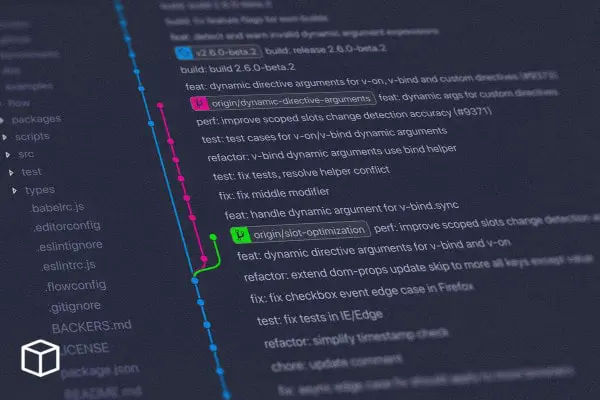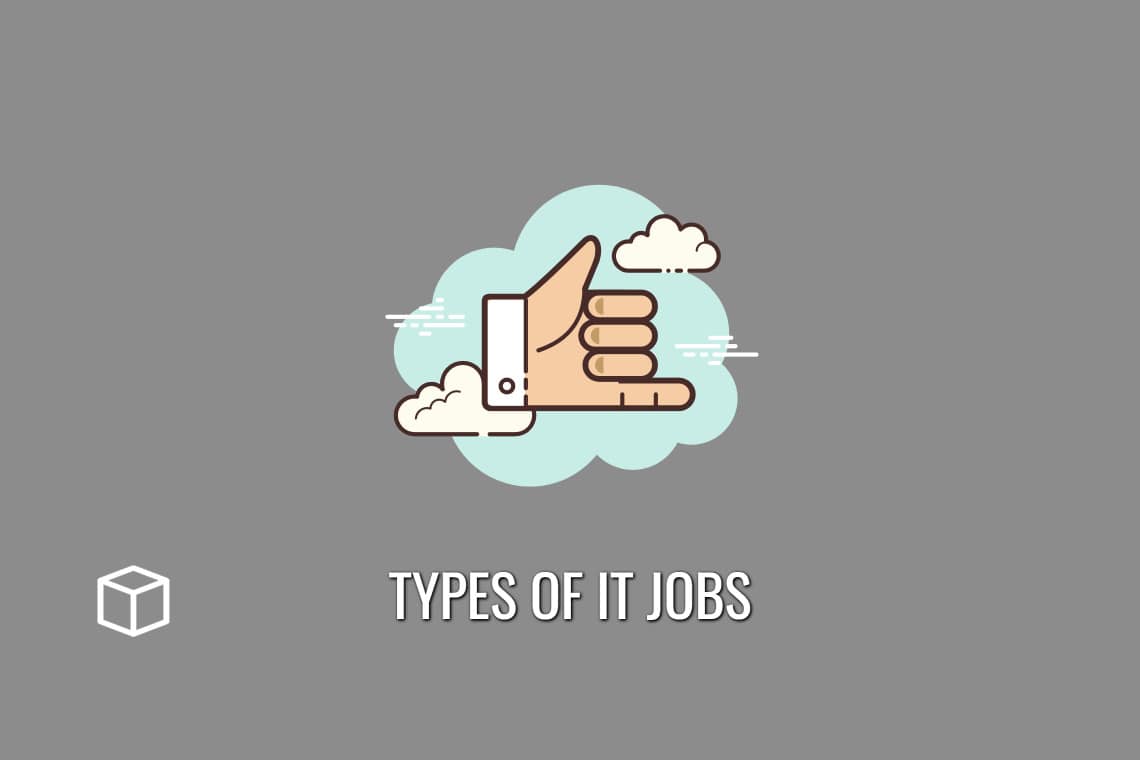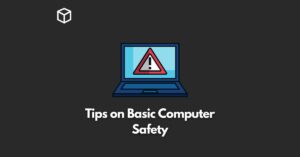There are many different IT career paths that you could take, including: Network Systems Administrator; Software Engineer; Database Specialist.
The best way to decide which type of job is the right fit for you is to first do some research and then figure out what interests you as well as figuring out your strengths and weaknesses.
Once this information has been gathered it will be much easier to find a position in an industry or company where there may not even be any openings!
In this article, we have listed down 16 types of IT jobs that you can explore.
Different Types of IT Jobs To Explore
Here is the list:
1. Computer Programmer
A Computer Programmer is someone that undertakes the design and implementation of programs that computers use to accomplish a task.
The requirements for the computer programmer is usually a bachelor’s degree in computer science, mathematics, or engineering.
2. Web Developer
Web developers create and manage websites and mobile applications.

They’re often called upon to create a site’s entire front and backends, and they may also oversee site analytics. Web developers can work in any industry that requires a website or mobile application, including financial services, retail, media, travel, entertainment, healthcare and government.
Job requirements for web developers are usually a bachelor’s degree in computer science, information systems, information technology, or a related field. Some companies require the applicant to have experience with web development languages such as JavaScript, HTML5 and CSS3.
3. Network Engineer
A Network Engineer is a professional that creates, designs, implements, maintains and supports the use of the technology systems to create networks. They design, build, configure and test hardware devices to ensure that they are capable of making connections to other servers. They also have to be cognizant of security protocols. The Network Engineer analyzes user requirements and reviews functional specifications before identifying technical limitations or problems in configurations. They work with other departments to help them understand the network infrastructure.
Educational requirements for becoming a network engineer are the following:
- You would need to have a bachelor’s or higher degree in computer science, engineering, information technology, or a related field from an accredited college or university.
- You must also have at least two years of networking experience and an understanding of current and emerging network technologies.
4. Database Administrator
A database administrator, or DBA, oversees the administration of a database. This includes backing up and restoring databases and ensuring that they are operating correctly.
A DBA may also be responsible for the performance of the database, ensuring that it is not overloaded with queries.
The duties of a DBA vary according to their level. An entry-level DBA’s responsibilities are mainly administrative, while those at the highest level are expected to have expert knowledge in all areas of data management.
Some of the educational requirements for Database Administrators are an Associate’s degree in computer science, or at least 6 years working with relational databases.
Entry level database administrators usually start out with an associate’s degree in computer science and/or computer programming. High-level Database Administrators have a bachelor’s degree in computer science, a master’s degree in business administration, and/or a CISA certification.
5. IT Support Specialist
Most IT support specialists are employed in the IT departments of corporations, businesses, government agencies, and educational institutions. They’re primarily tasked with maintaining business operations by troubleshooting any computer problems that arise.
Most IT support specialists have a bachelor’s degree in computer science, information systems, or technology management. The majority of IT support specialists also have some level of certification for technical knowledge and skill.
6. Web Administrator
A web administrator is someone who maintains or manages websites. Such a person might have programming skills, be able to manage databases, oversee social media accounts, or more depending on the company’s needs. A web administrator might also be called an internet site manager.
7. Help Desk Technician
A Help Desk Technician helps people with computer and technical problems, troubleshooting and solving their issues. They also train the employees of the company on how to use new software programs and technology.
Technical Help Desk Technicians typically have a degree in a Computer Science, Information Technology, or a related field.
8. Cloud System Engineer
A cloud system engineer is a person who designs and maintains the technology that provides computing services (such as storage, data processing, or software) on servers in a cloud.
Some people develop applications that run on the cloud, some others develop and maintain the APIs (application programming interfaces) used by such applications to communicate with the systems on which these apps run. They also monitor and adjust performance on a 24×7 basis.
9. IT Security Specialist
IT security specialists work in a variety of sectors to develop and manage digital safeguards for an organization’s intellectual property and data. They assist businesses in developing contingency plans in the event that their networks and servers are hacked. These experts also devise solutions for resolving issues as they emerge.
Many jobs demand a bachelor’s degree or professional certification. The Information Systems Security Certification Consortium offers courses in arithmetic, programming, and operating systems, as well as certificates (ISC2).
10. Computer Scientist
A computer scientist is someone who studies the theoretical aspects of computing to solve IT problems in a company. Computer scientists are often experts in fields like artificial intelligence, machine learning, and computational sociology.
A computer scientist does not necessarily do hands-on work with computers. This is because computing itself is abstracting something that already exists (like mathematics or engineering).
A computer scientist tries to figure out the fundamental rules behind how things like websites, programs, or games are created. Computer scientists also work on artificial intelligence and robotics projects.
11. User Experience Designer (UX Designer)
User Experience Designers are the masterminds behind the way people interact with sites and applications.
Understanding human needs and behavior patterns, UX designers create wireframes, specifications, and mockups for interfaces. They need to be creative, collaborative, and analytical to succeed in this role.
A bachelor’s degree in computer science is a standard prerequisite.
12. IT Quality Assurance Tester
An IT Quality Assurance Tester is responsible for verifying that the application is performing as intended. An IT QA Tester will also monitor the performance of the applications with respect to an application’s specifications and related standards.
IT QA Tester will be responsible for:
- Develop testing strategies and test plans in close cooperation with the project’s functional team.
- Design, develop and execute tests against software applications, perform manual or automated regression testing.
- Create and maintain testing scripts, procedures and test cases using a standard methodology.
A Bachelor’s Degree in Software Design, Engineering, or Computer Science is common among quality assurance testers.
13. Systems Analyst
A systems analyst is someone who uses their expertise to build an integration of hardware, software, data and people that will solve a business or organizational problem.
This is accomplished through the development and management of information systems. Systems analysts don’t work alone; they join up with team members such as computer programmers, software engineers and IT project managers to implement solutions.
A systems analyst analyzes an organization’s current processes, procedures and operations in order to recommend a system that will best serve the organization’s needs.
Systems analysts are in high demand when an organization is ready to take their next technological leap forward, whether it be to enhance business transactions, automate processes or integrate multiple technologies.
14. Data Quality Manager
Data Quality Manager is a profession who’s task it is to make sure that the customer data is accurate. This includes ensuring that all data entered into a system is accurate and not missing any information.
They can also ensure that the quality of the data doesn’t degrade over time. Data quality managers typically have training in data management or computer science.
15. IT Coordinator
IT Coordinators are an integral part of the IT support team at a company. They handle all computer related problems and issues that may arise in the office.
They also work with employees and managers to plan and execute new computer systems and setups in the office.
They are in charge of training employees how to use these new systems, as well.
When a new technology is on the horizon that will benefit the company, they work with employees and managers to determine if it should be implemented and deal with any opposition that might arise from its implementation.
16. Management Information Systems Director
A Management Information Systems Director works as a system manager and has the responsibility to oversee the development and management of computerized systems.
He or she is responsible for the planning, implementation, and day-to-day oversight of company information systems resources, such as networks, databases, and applications.
Management Information Systems Directors are required to have earned at least a bachelor’s degree in information technology, business administration or computer science.
So these are the various types of IT Jobs that you can look to get into.




